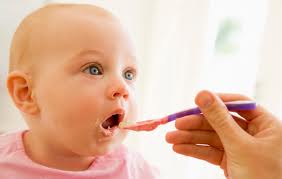Infant feeding problem refers to a condition in which the child does not have interest in feeding or is not able to obtain enough nutrition through breast feeding or bottle-feeding. An infant with infant feeding problems may refuse a bottle or breast, have abdominal bloating, abdominal swelling, hunger, excessive gas, spitting up, diarrhoea, constipation, inability to gain weight and rashes. The child may also show mood changes such as increased fussiness and lack of interest towards 
Treatment for infant feeding problems often depends on the cause of the condition. Treatment options may include smaller, yet more frequent feeding’s or making a switch from breast-feeding to bottle-feeding. Your doctor may also advise hanging your child’s feeding schedule, considering formula changes and choosing soy-based formulas for the baby.
Causes
Causes of infant feeding problems may include:
- Anal fissure
- Constipation
- Corneal abrasion
- Drug side effect
- Ear infection
- Environmental changes – too cold or too hot
- Gastritis
- Gastroenteritis
- Infantile colic
- Injuries that may cause pain
- Intussusception
- Meningitis
- Intestinal parasites such as pin-worms
- Pyloric stenosis
- Teething
- Testicular torsion
- Urinary tract infection
- Upper respiratory infection
Additional causes may include:
- For breast-fed infants:
- Mother is consuming alcohol
- Mother is having a breast infection or irritation
- Food allergies
- Insufficient breast milk supply
- Medication sued by mothers
- Stimulants such as nicotine or caffeine used by the mother
- Under-feeding
- For formula-fed babies:
- Lactose intolerance
- Allergies to milk protein contained in cow’s milk
- Overfeeding or under-feeding
- Child is introduced to solid food too early – before 5-6 months of age
Symptoms
Signs and symptoms of infant breast feeding problems in babies include:
- Abdominal swelling or bloating
- Refusing to feed
- Excessive gas
- Excessive spitting
- Excessive hunger
- Constipation
- Diarrhoea
- Fussiness
- Vomiting
- Inability to gain weight
- Weight loss
- Rash
Treatment
Treatment for infant feeding problems may include:
- Smaller yet more frequent feeding’s
- Switching from breast feeding to bottle feeding
- Switching from difficult bottle feeding to breast feeding
- Change in baby formula
- Using soy formula
- Changes in feeding schedule
Home care treatment
If your child is having infant feeding problems, follow these home care steps:
- Learn how to properly feed your baby
- Stop taking non-prescription medication
- Fussiness may be caused due to underlying conditions such as anal fissure, diaper rash, constipation, and eyelash in the eye or hair wrapped around the penis or finger. Treat these problems to prevent fussiness and to allow proper feeding again
For infants under 3 months of age, follow these steps:
- Keep the child in a dark, quit room so that he or she can sleep
- Breast feed every 2-4 hours
- In case your child is hungry after breast-feeding, your child may need formula feeding’s as well
- Rock your baby gently or cuddle him or her to sleep
- Prevent your child from sleeping face-down
For breast-fed infants, follow these steps:
- Stop smoking
- Avoid alcohol
- Avoid herbal supplements and non-prescription medication
For bottle-fed infants, follow these steps:
- Provide smaller yet more frequent feeding’s
- Allow your child to burp between feeding’s
- Avoid giving cow’s milk and try giving a soy-based formula
- Dilute the formula used in half for 1 day before using the concentrated formula
